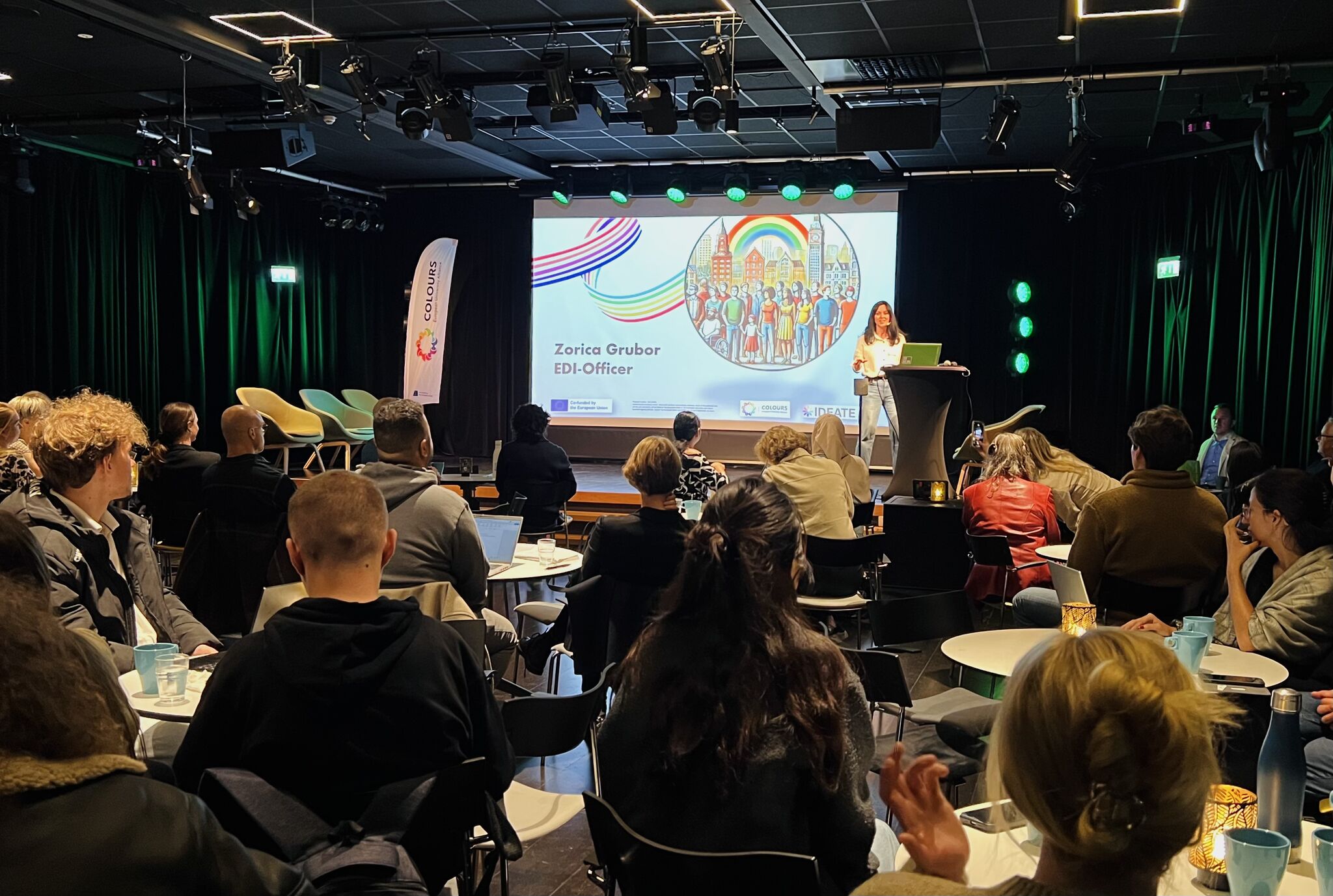
IDEATE at the Colours CoLab & Food Hack
Within the European University Alliance COLOURS, Högskolan Kristianstad recently hosted a CoLab and Food-Hack workshop. It was three days filled with innovation, learning, and collaboration under the theme “How can collaboration influence choices towards a healthy lifestyle and sustainable food habits?”
Following the Quadruple Helix model, participants from academia, civil society, and the public and private sectors came together to discuss current challenges and explore solutions for promoting sustainable food habits and healthier lifestyle choices. After an insightful panel discussion featuring experts on the topic, students from across the COLOURS Alliance universities worked in multidisciplinary teams using Design Thinking to develop innovative and creative solutions.
As part of the event, Zorica Grubor, EDI Officer within the Colours European University Alliance, highlighted the importance of Equity, Diversity, and Inclusion (EDI) in innovation processes. She spoke about how diversity, when combined with intentional inclusion and an understanding of intersectionality, fosters creativity, collaboration, and more effective problem-solving.
The CoLab & Food Hack exemplifies the IDEATE project's vision of integrating EDI principles into innovation, education, and challenge-based initiatives. By embedding equity and inclusion, while using Design Thinking as an approach, we aim to strengthen the connection between diversity and innovation across European higher education.
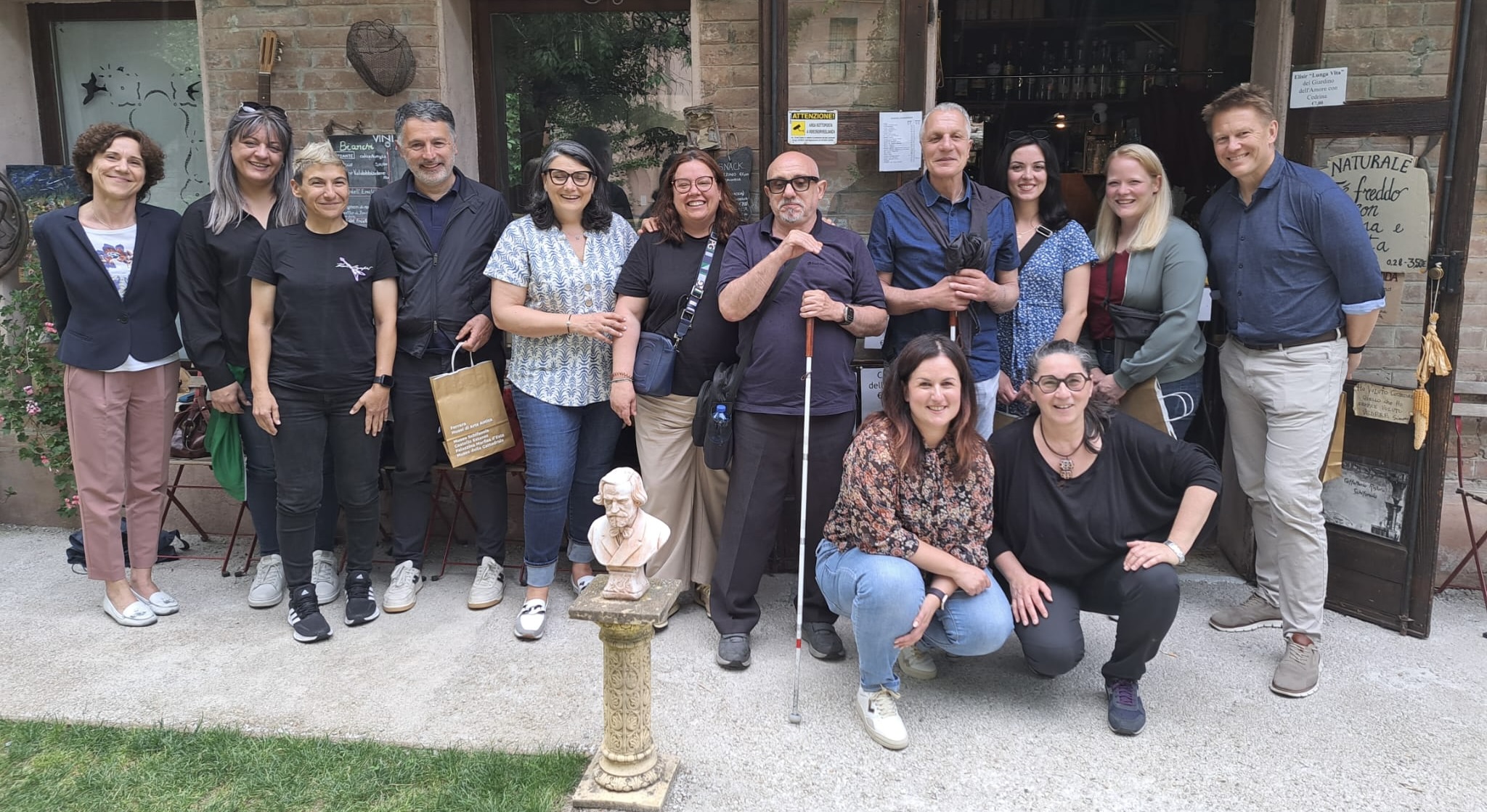
Promoting Inclusive Cultural Heritage: IDEATE Partners Visit Schifanoia Museum in Ferrara
As part of the IDEATE consortium meeting in Ferrara, project partners had the opportunity to visit the recently restored Schifanoia Museum—an emblem of cultural heritage and a case study in inclusive museum practice.
The afternoon programme, titled Preserving and Diffusing Cultural Heritage in an Inclusive Way, was hosted at the historic Palazzo Schifanoia and offered insights into the museum’s innovative efforts to make art and heritage more accessible to diverse audiences.
Participants were welcomed by Romeo Pio Cristofori, Art History Curator for the Museums of Ancient Art, and Paolo Rebecchi, Head of Design and Building Management for the Municipality of Ferrara. They presented the museum’s historical and artistic significance, while also outlining the extensive renovation work recently completed to improve the visitor experience. This included thoughtful exhibit redesign, enhanced physical accessibility, and collaboration with civil society organisations to promote cognitive and cultural inclusion.
A highlight of the session was a presentation by Silvia Albieri, pedagogical coordinator from Il Germoglio Social Cooperative, who described the inclusive approach adopted for training front-line reception staff. Her contribution underscored the importance of awareness, empathy, and clear communication in creating welcoming environments for all visitors.
The guided tour that followed brought these concepts to life. Led by Romeo Pio Cristofori and Silvia Albieri, and accompanied by representatives from the Italian Union of the Blind and Partially Sighted People (UICI Ferrara), the tour showcased key artworks while demonstrating the museum’s tailored communication tools for visually impaired visitors. This included tactile maps, braille labelling, and audio guides co-developed with users and advocacy groups.
The visit concluded with informal reflections in the museum’s tranquil garden, where participants were invited to enjoy an aperitif and continue conversations about the role of cultural institutions in advancing equity, diversity, and inclusion.
IDEATE warmly thanks the Municipality of Ferrara and all expert contributors for making this enriching experience possible. The visit to Schifanoia Museum served not only as a celebration of art and history, but as a powerful example of how cultural spaces can be transformed through inclusive design and meaningful stakeholder engagement.
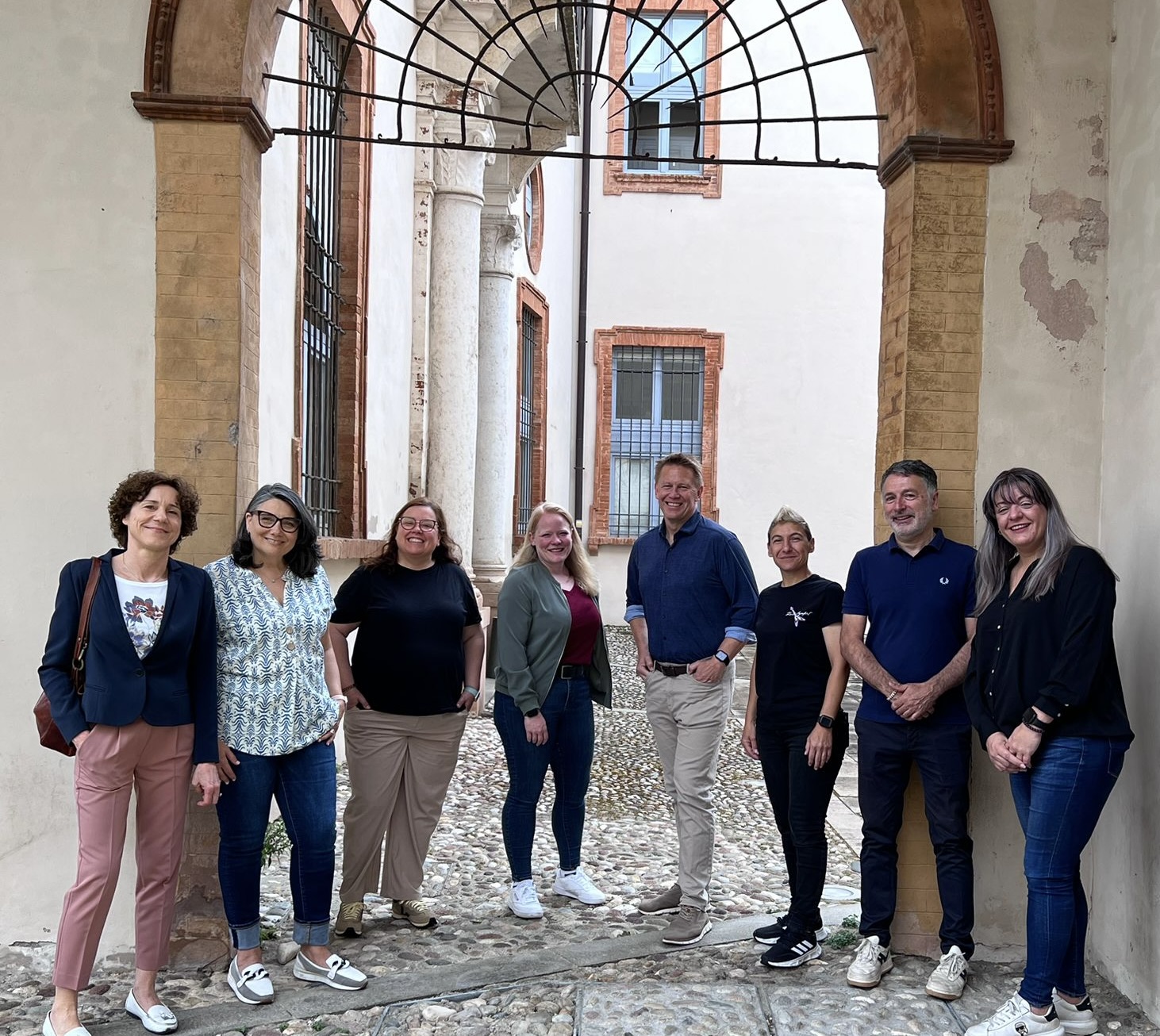
IDEATE Surpasses Engagement Targets and Advances Curriculum Integration
The IDEATE project has already exceeded its initial engagement targets, with more than 400 students from 10 countries having participated in the IDEATE/Imagine Seminars. This wide-reaching involvement reflects both the importance of the project’s objectives and the effectiveness of partner collaboration. Notably, institutions such as UPB and UNIFE have pledged to continue the IDEATE/Imagine Seminar model beyond the project’s official timeframe, reinforcing its long-term educational value.
Substantial progress has also been made in curriculum development. The consortium has collaboratively produced 10 ECTS of learning content, delivered across 10 bespoke courses. All modules remain on track to be recorded and finalised by 1 September 2025. Additionally, a 1-hour lifelong learning EDI training session—developed for stakeholders across the Quadruple Helix (including policymakers, academia, civil society, and industry)—is under preparation by partners in Sweden and Cyprus. This module is expected to be completed by the end of August and translated into partner languages by mid-October, with English remaining the master version.
A key discussion point was how each institution can incorporate the developed modules into its existing curricula. This process varies by university and typically requires approval through several internal governance layers, including departmental boards, faculty committees, and central academic councils. Depending on the institution, this can take from one semester to more than a year.
Evaluation of the curriculum is well underway. Work Packages 2 and part of Work Package 3 have already been reviewed by five external universities from the COLOURS Alliance, all of which provided positive feedback. The project also plans to engage EDI officers from these institutions to review and comment on the finalised course content. Internally, the IDEATE partners—comprising highly experienced lecturers and professors—have confirmed the curriculum’s relevance and suitability across diverse university contexts in Europe.
A number of analytical measures have already been successfully implemented to strengthen the evaluation process. Content analysis has confirmed that key EDI themes are well represented and aligned with the work package objectives. Time-on-task analysis has helped ensure the workload per module is appropriate and manageable. While the partnership agreed that formal external assessments would not be developed at this stage, formative evaluation conducted by experienced academic staff has offered reliable insights into student comprehension and engagement. Lastly, alignment analysis has demonstrated strong coherence between the intended learning outcomes and the learning activities, reinforcing the overall educational quality and strategic relevance of the curriculum.
Together, these achievements mark an important milestone in the IDEATE project’s mission to embed equity, diversity, and inclusion across higher education systems in Europe.
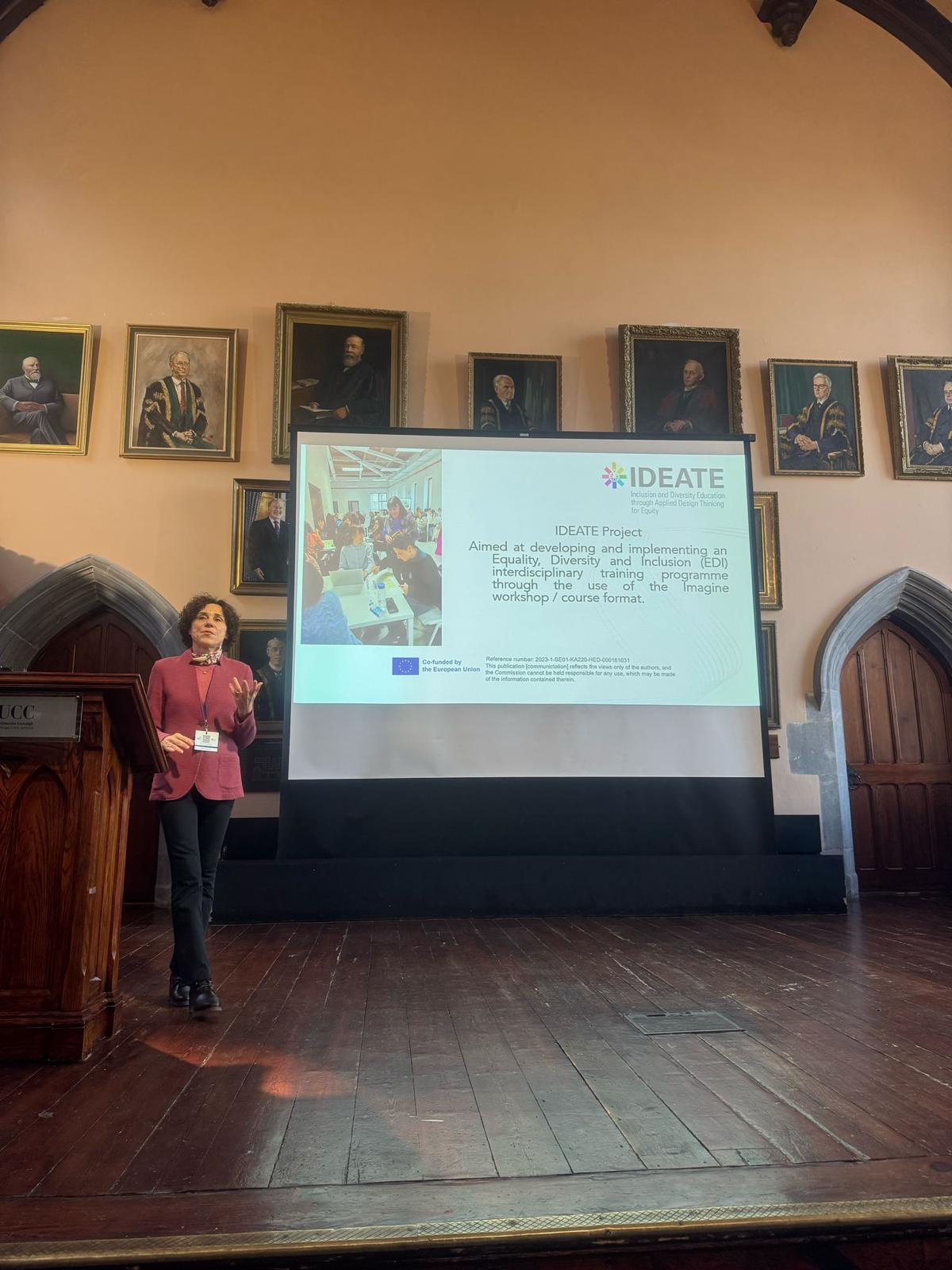
IDEATE at the European University Association
Our Italian colleague, Sandrine, had the opportunity to present the IDEATE project at the Learning & Teaching Forum organized by the European University Association. The event took place in Cork, Ireland, on 27–28 February 2025, and brought together approximately 250 participants from across Europe, fostering valuable discussions and exchanges on innovation in higher education.

IDEATE is part of an international course
The South African Comprehensive Cleft Care Workshop (CCCW) will feature a specialised psychosocial session using training materials provided by various EU projects, including IDEATE. This session is designed to boost the skills of emerging and intermediate healthcare providers; the material from IDEATE will highlight the EDI perspectives, especially intersectionality. The curriculum aims to prepare healthcare professionals with the necessary knowledge and tools to address the challenges encountered by individuals with cleft lip and palate.
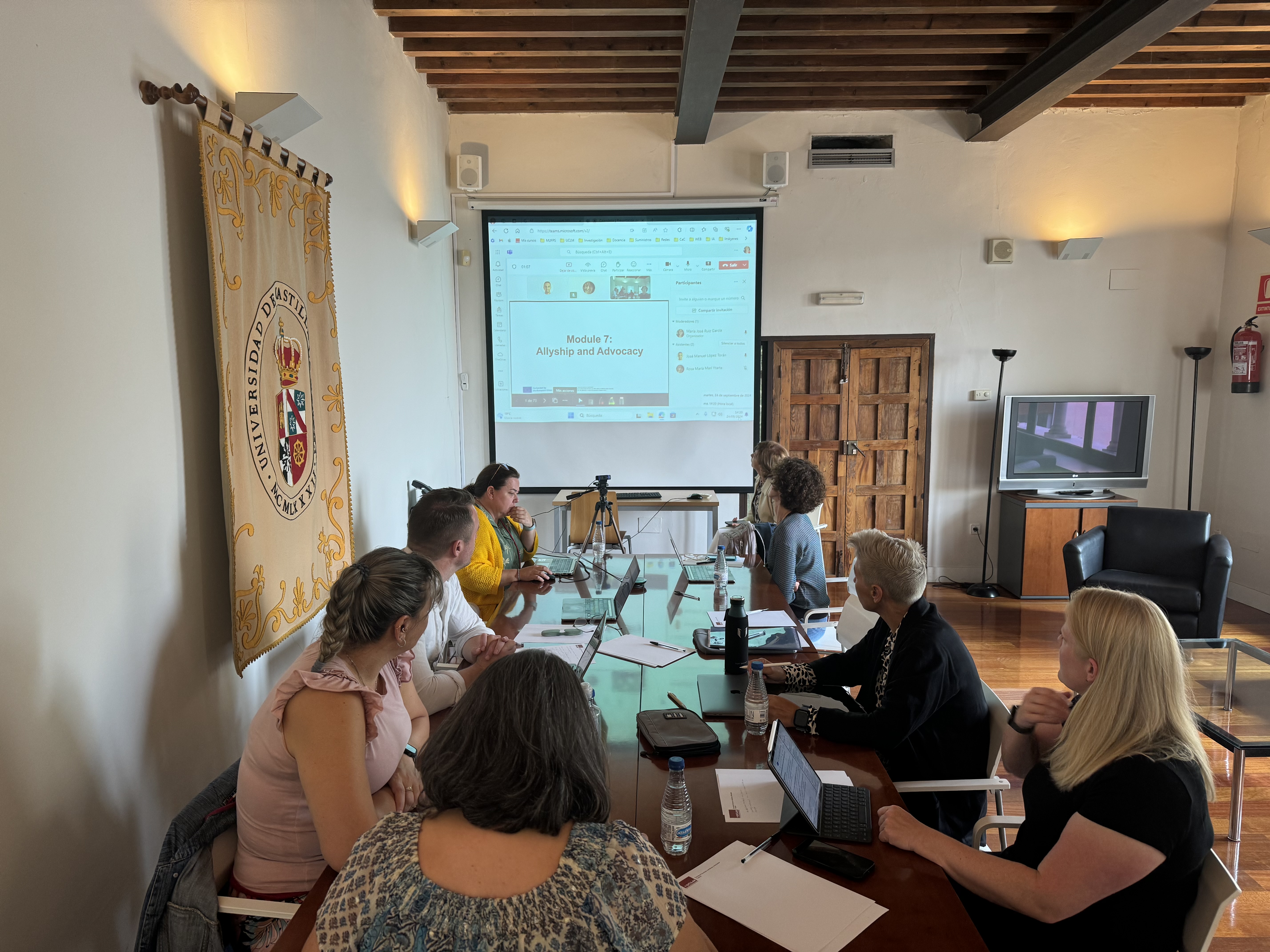
2nd Meeting in Spain
The second meeting took place in Toledo, Spain. It was a fruitful meeting with constructive discussions that advanced the project in line with the timeline and outcomes.
The partner universities are preparing to host one-day workshops that will employ design thinking principles. Each workshop aims to engage at least 35 participants from the university community, focusing on practical strategies to nurture an inclusive academic environment.
The framework for these workshops was developed with careful consideration and facilitated by a collaborative review session led by HKR. To support the effectiveness and reach of these initiatives, all workshop materials will be made available on a shared drive, enabling easy access and ongoing collaboration among all partners. Workshop dates will be scheduled soon.
Additionally, as part of Work Package 3, the partners have crafted educational modules to complement the workshops. These modules, developed through a process of peer feedback, can be utilised either as standalone units or as part of an integrated curriculum. The partnership has successfully created ten modules, each worth 1 ECTS, thereby increasing the total developed material from the initially planned 7.5 ECTS
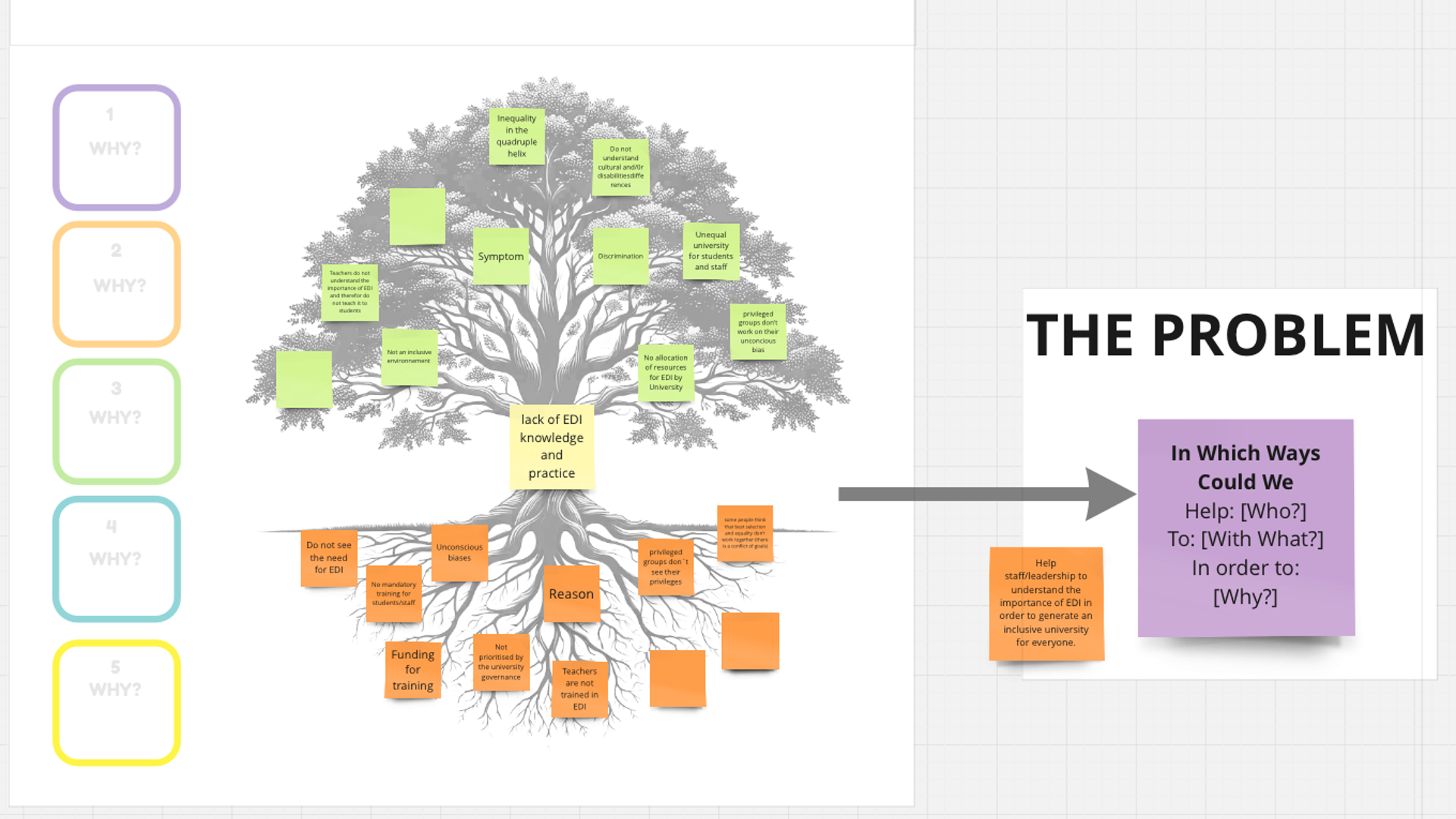
IDEATE Online Training Session Empowers Trainers in Applied Design Thinking for EDI
On 8 July, we successfully conducted an IDEATE online training session aimed at empowering trainers in Applied Design Thinking for Equity, Diversity, and Inclusion (EDI). Developed by HKR, the IDEATE program is designed to train educators to deliver a comprehensive one-day EDI workshop using the principles of design thinking. The session included familiarising participants with the concept of EDI, teaching the core principles of design thinking, providing essential workshop materials, guiding them through the process, conducting a practice workshop, encouraging customisation, evaluating and providing feedback, and fostering ongoing learning and improvement.
The design of the online training session went beyond the scope of what we promised in our application, offering an enriched and immersive experience for the participants. With 25 enthusiastic participants from 10 universities, the full-day online training session received outstanding feedback. Participants praised the effectiveness and engagement of the training, highlighting the positive impact and practical value of the session. This initiative marks a significant step towards enhancing EDI understanding and implementation in educational settings through innovative design thinking approaches.

EDI workshop - IDEATE & COLOURS
Four of the partners from IDEATE (Germany, Italy, Spain and Sweden) are also part of the European University Alliance - COLOURS. It has been agreed that we will implement the EDI workshops also at the following universities - Jan Dlugosz University in Czestochowa (Poland), Le Mans University (France), Ventspils University of Applied Sciences (Latvia), University St Kliment Ohridski Bitola (North Macedonia) and Josip Jurai Strossmayer University Osijek (Croatia) during the fall 2024.
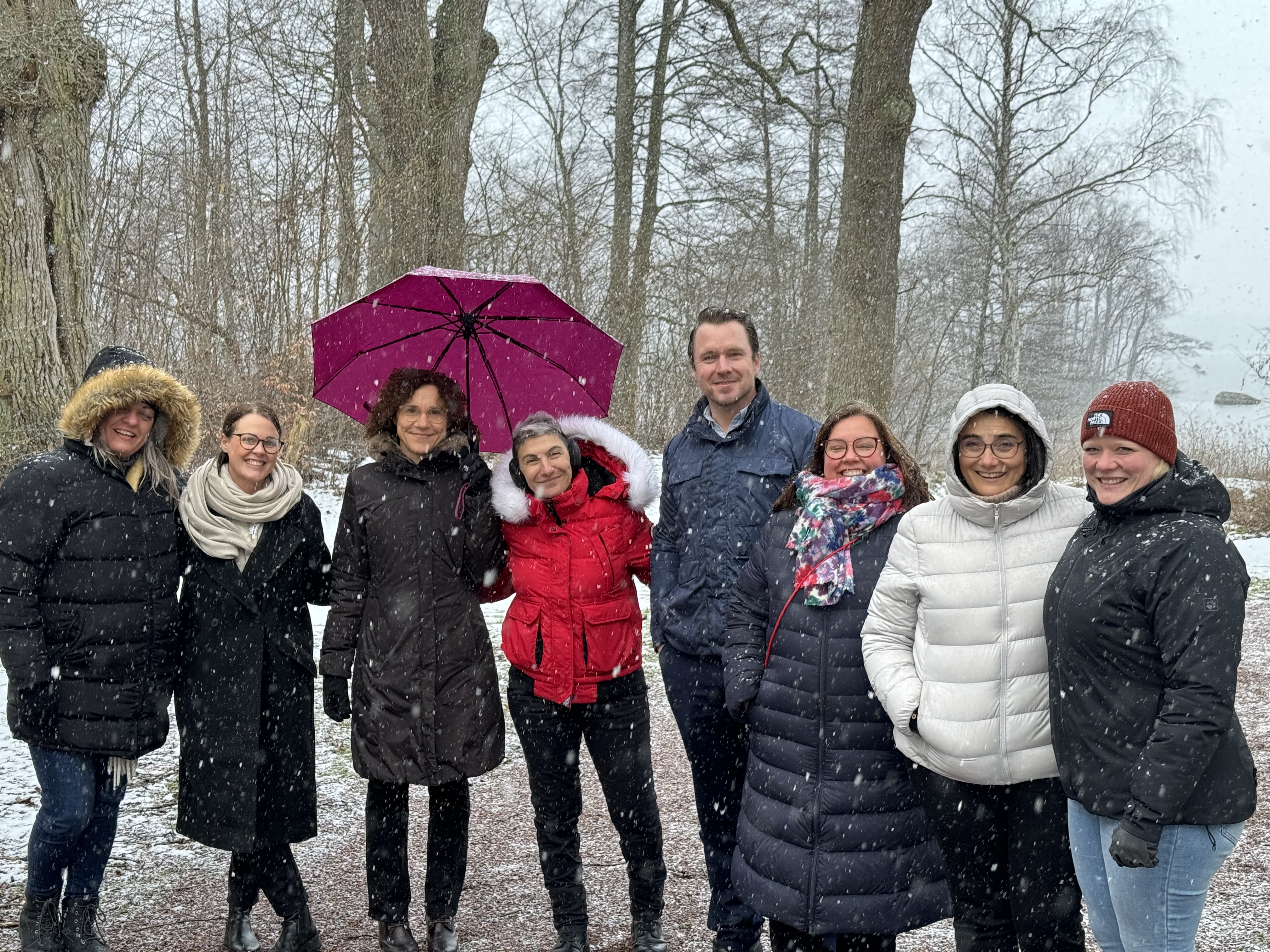
1st meeting in Sweden
The recent IDEATE meeting held in Sweden, from February 8th to 9th, 2024, marked a significant milestone in our collaborative efforts to promote inclusion and diversity through education. The meeting brought together partners who introduced themselves and discussed crucial aspects of the project, including budget clarification and financial regulations. This ensured transparency and alignment in managing project finances, setting a solid foundation for future activities.
A key focus of the meeting was the development of the 10 ECTS curriculum, expanded from the initial 7.5 ECTS target, alongside three sequential micro-credential courses. Each course is designed to deepen understanding of Equity, Diversity, and Inclusion (EDI) and is structured to offer a comprehensive and modular learning experience. Partners agreed on specific modules, each assigned to different universities, with content aligned to the European Qualifications Framework (EQF) and crafted using Bloom's Taxonomy. Additionally, a workshop on applying design thinking to EDI was introduced, emphasising the importance of innovative approaches in education.
The meeting also addressed the dissemination strategy, including the launch of a new website. Partners are committed to sharing any additional costs associated with this innovative approach. The importance of risk and quality analysis was underscored, with new tools introduced to document and monitor these aspects. Future meetings were scheduled to ensure continuous collaboration and progress. Overall, the IDEATE meeting was a resounding success, fostering a spirit of cooperation and setting clear goals for the project's next phases.
